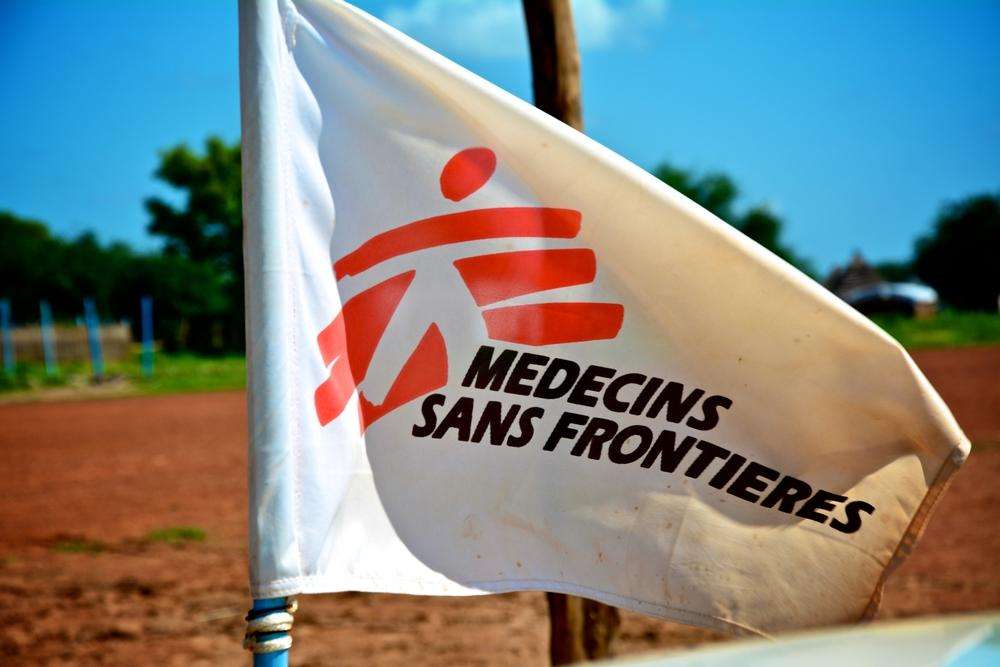by Aymeric Péguillan
The cancelation of Round 11 of the Global Fund to Fight AIDS, Tuberculosis, and Malaria undermines the significant progress that has been made in the uphill battles against these deadly diseases.
Aymeric Péguillan is Head of Mission with Doctors Without Borders/Médecins Sans Frontières (MSF) in Swaziland.
Soon it will be necessary to explain to patients infected with HIV and simple and multi-drug resistant strains of tuberculosis, and to the mothers who each year lose their children to malaria, why big banks have access to emergency rescue measures when they do not.
The cancelation last week of Round 11 of the Global Fund* to fight AIDS, Tuberculosis, and Malaria is a huge hit to the patients, activists, and caregivers who in the past ten years have made significant progress in the uphill battle against these deadly diseases. The hope of dealing a fatal blow to the epidemics of our time was never greater than in recent months. Encouraging results published in a number of recent studies show the considerable scientific impact that antiretrovirals (ARVs) have had—not only on preventing the transmission of the HIV virus from an HIV-positive patient to an uninfected person, but also on the overall health of those already infected.
These latest advances have caused medical organizations such as Doctors Without Borders/Médecins Sans Frontières (MSF) to seriously focus on developing preventative treatment strategies to reduce transmission, rather than focusing on treatment alone. These new measures, adapted for medical contexts presenting a high prevalence of HIV, are also designed to engage with countries’ health ministries in order to guide quick implementation.
At its inception, the Global Fund raised hopes that the efforts of field workers would be supported by a strong financial mechanism, and that this support would lead to a victory against the great epidemics of AIDS, tuberculosis, and malaria. The major donor countries publicly pledged to support this unique initiative through continuing donations. Such support could have silenced those skeptical about whether or not international cooperation on health could benefit the most vulnerable.
Sadly, it was not foreseen that a global economic slowdown would cause the major governing powers to turn their backs on the Global Fund. Today, these leaders are more concerned with satisfying domestic needs and interests than they are with honoring past commitments on which millions of lives depend.
Enormous Challenges for Patients
We must not allow the challenge of ending these epidemics to fall by the wayside in the wake of this cowardly decision. Many countries, mostly situated in Sub-Saharan Africa, are currently attempting to implement health care systems adapted to the needs of patients infected with HIV, tuberculosis, and malaria. There is no doubt that despite the present difficulties and fragile Ministry of Health management systems, a political will has been established to battle head-on the three major epidemics in seriously affected countries. But even if the political will is there, it is clear that these states are, at present, unable to bear the financial costs associated with implementing such ambitious—and effective—strategies on their own. These nations rely on mechanisms like the Global Fund to achieve these goals and give hope to millions of people that they can lead healthy and productive lives.
The cancellation of Round 11 has halted the positive momentum that was spreading across the community of patients and caregivers worldwide. In countries such as Swaziland, HIV prevalence is at record levels (26 percent of the adult population), and health actors are working hard to stem the epidemic in difficult economic conditions. Quite simply, tens of thousands of lives are at stake if pledges to the Global Fund are not met. This is not to mention those people who are eligible and waiting for their treatment to begin but will be sent home for lack of available drugs.
In Swaziland, where almost 68,000 people are on treatment, medication shortages will be deeply felt in 2012. In Mozambique, a neighboring country with 240,000 people on ARVs and the same amount waiting to begin treatment, the ax will fall even sooner.
This loss of funding could mean a return to the situation in the year 2000, when caregivers had to choose which of their patients had the greater chance of survival. Forcing people to make this choice in 2011 is totally unacceptable. Who will explain to all of these patients that they will no longer be treated?
*The funds from the different Rounds of the Global Fund serve as annual allowances allocated to countries who have requested support for their national programs to fight against AIDS, tuberculosis, and malaria.




